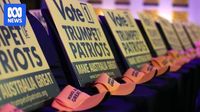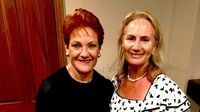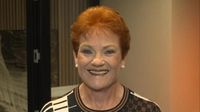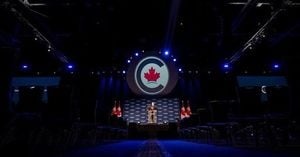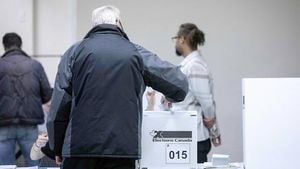As the federal election approaches on May 3, 2025, Pauline Hanson's One Nation party is experiencing a surge in support, raising the prospect of becoming a significant player in the Australian political landscape. Recent polling indicates that One Nation's primary vote has climbed to 10.5%, more than double its performance in the last election, and this shift reflects growing discontent with the major political parties.
Senator Hanson, who has been a long-standing figure in Australian politics, expressed optimism about her party's influence in the upcoming election. "People are not happy with either of the major political parties, and that reflects the policies we have put out," she stated in an interview with AAP. She believes that One Nation's focus on issues like housing affordability and cost of living resonates with voters who feel overlooked by the traditional parties.
In a notable development, the Coalition, led by Opposition Leader Peter Dutton, has indicated a willingness to direct preferences to One Nation in many key seats. This marks a significant shift from past practices where One Nation was often sidelined. Dutton has avoided direct questions about these preference arrangements but emphasized the importance of securing votes from all Australians.
"We've taken the decision that we want to make sure that Australians can preference us first," Dutton said during a press event in Moss Vale. The Coalition's decision to place One Nation second on how-to-vote cards in crucial districts could bolster their chances against Labor candidates, especially in outer suburban areas where cost-of-living pressures are particularly acute.
One Nation's rise in the polls comes amid a broader trend of dissatisfaction with major parties, as many voters are looking for alternatives that align more closely with their values. Hanson noted that her party's message of honesty and integrity is gaining traction. "It's called resilience, honesty, integrity and standing by what I believe in is best for the Australian people," she told Sky News, highlighting her commitment to representing the interests of everyday Australians.
However, the political landscape is complicated by the presence of another minor party, Clive Palmer's Trumpet of Patriots, which shares a similar voter base with One Nation. Both parties advocate for a reduction in immigration and a rollback of what they term the "woke agenda" in schools. Palmer's party, however, has faced criticism for its aggressive campaigning tactics, including the use of spam texts to reach potential voters.
Political analysts suggest that while One Nation may benefit from its growing popularity, it is also competing for the same right-leaning voters that Palmer's party seeks to attract. This competition could complicate the flow of preferences, making it uncertain how either party's support will translate into actual votes on election day.
Hanson's party is not only campaigning on immigration but also on broader economic issues that resonate with voters. "The biggest thing affecting people is housing and the cost of living," she said, emphasizing the need for policies that prioritize Australian values and interests.
While One Nation is gaining momentum, experts caution that its electoral success is not guaranteed. Historical trends show that despite strong polling leading up to elections, the party has often underperformed at the ballot box. This time, however, analysts like Jim Reed from Resolve Strategic believe that the rising support for One Nation could assist the Coalition in securing key seats.
Reed noted that many voters who are currently supporting One Nation may have originally come from the Coalition, suggesting that the dynamics of voter preferences could shift significantly. "We also need to bear in mind many will have come from [the Coalition] in the first place, so it only counts in seats where the Coalition’s primary vote is holding up in its own right," he explained.
As the election date approaches, One Nation is focusing on its campaign strategy, with Hanson asserting that her party could win Senate seats across multiple states, including New South Wales and South Australia. "One Nation is the story," said Ben Oquist, a political consultant, highlighting the potential for the party to secure a more significant presence in the Senate.
In the final days of the campaign, the focus will be on how preferences from One Nation and other right-leaning minor parties will flow and whether they will significantly impact the election outcome. With rising support for One Nation, the Coalition's hopes of regaining lost ground in traditionally Labor-held seats may hinge on the effectiveness of their preference deals.
As voters head to the polls, the question remains whether One Nation's momentum will translate into actual seats in Parliament or whether the major parties will retain their dominance in Australian politics. With both Hanson and Palmer vying for the same electorate, the outcome of this election could reshape the future of Australian governance.
